4 Calming Herbs for Anxiety and Stress
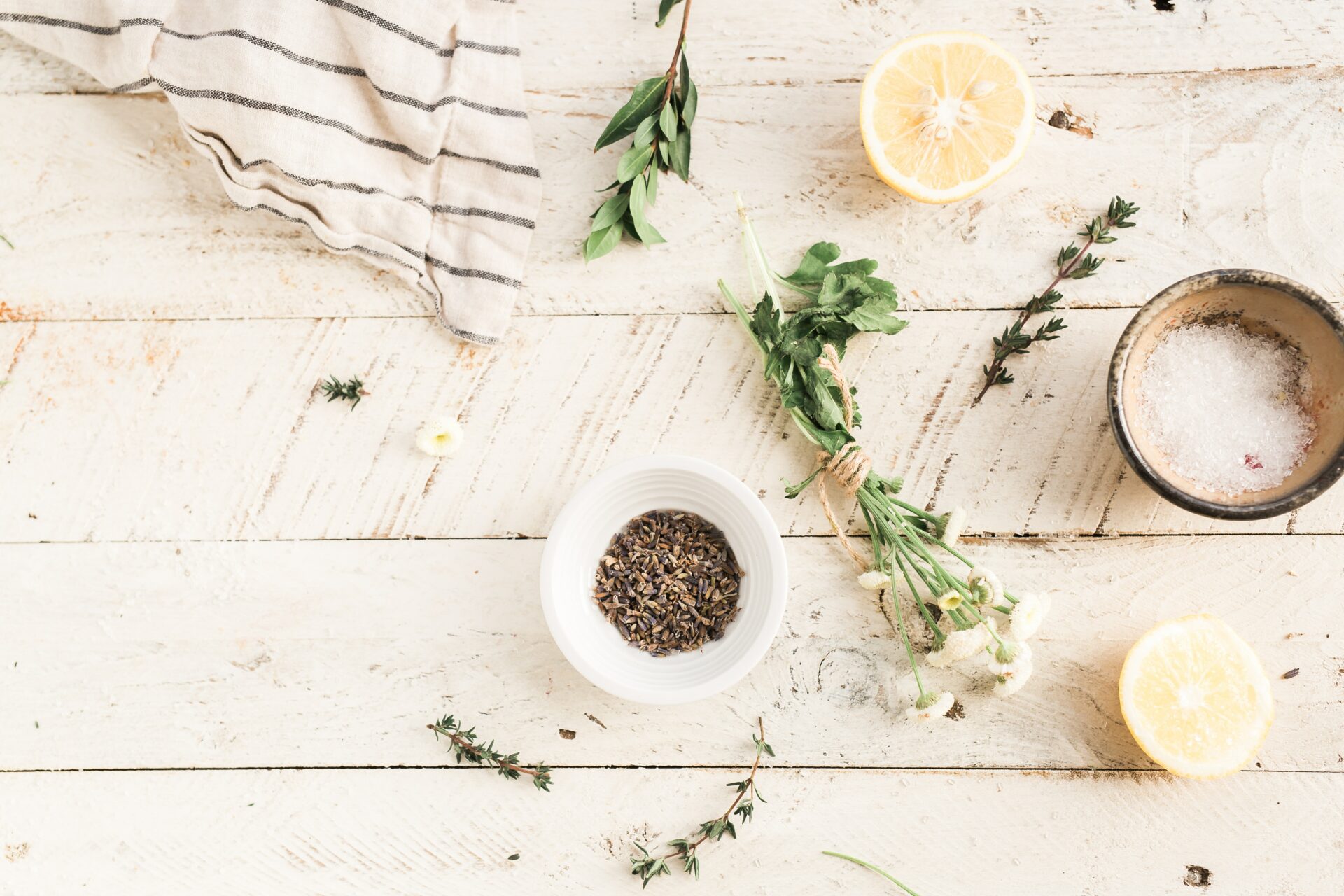
Anxiety and stress are common problems brought on by life changes, difficulties, or mental health struggles. Using a comprehensive strategy to address these problems, including exercise, sleep, and diet, is a good idea. Utilizing natural herbs for stress and anxiety can be an effective method to help the feelings and effects of stress.
1. Holy Basil
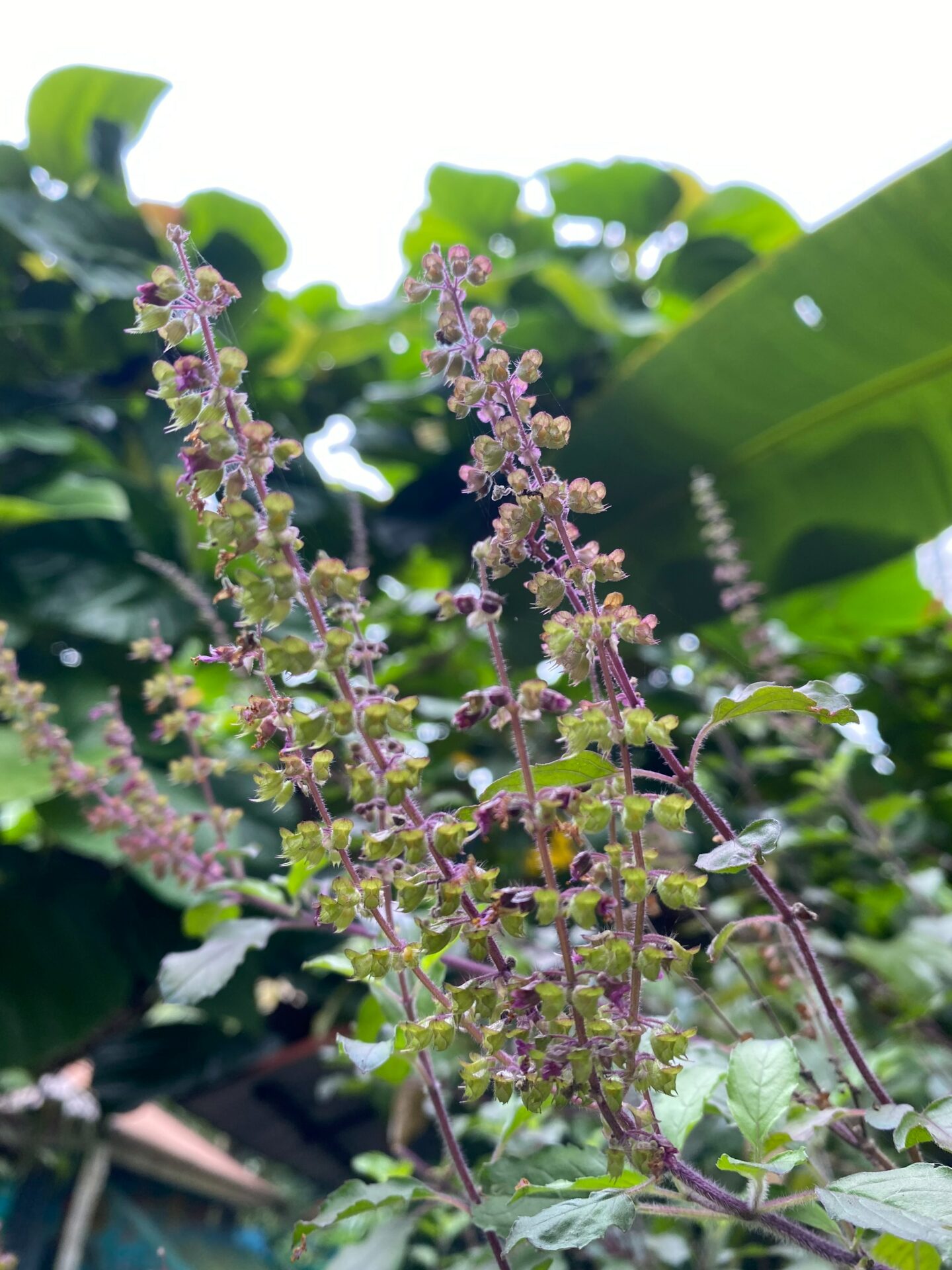
Holy basil isn’t like the sweet herb in your Caprese salad. The plant is native to Southeast Asia and is a key component in Ayurveda and Hindu therapeutic applications. For example, the scent of basil has been long believed to have a calming effect on the mind and body, which may help to reduce stress.
In India, holy basil is called “The Queen of Herbs.” It’s been a part of Hindu medicine for thousands of years. It is best known for its calming, stress-reducing, and sleep-inducing properties. During a stressful day of emails, deadlines, and must-completes, your body’s stress hormone levels (cortisol) will rise. Those high levels may be behind trouble sleeping, waking up at night, and the many other trials of being stressed. Holy basil may help. Studies suggest that Holy Basil can help reduce the overproduction of cortisol. One clinical study showed that the herb was much more effective than a placebo on human patients with generalized anxiety disorder.
According to the Journal of Ayurveda and Integrative Medicine, holy basil has antidepressant and antianxiety effects. One study showed that people taking holy basil daily felt less stressed and more social.
That said, more research is needed to support its medicinal benefits concretely.
2. Lemon
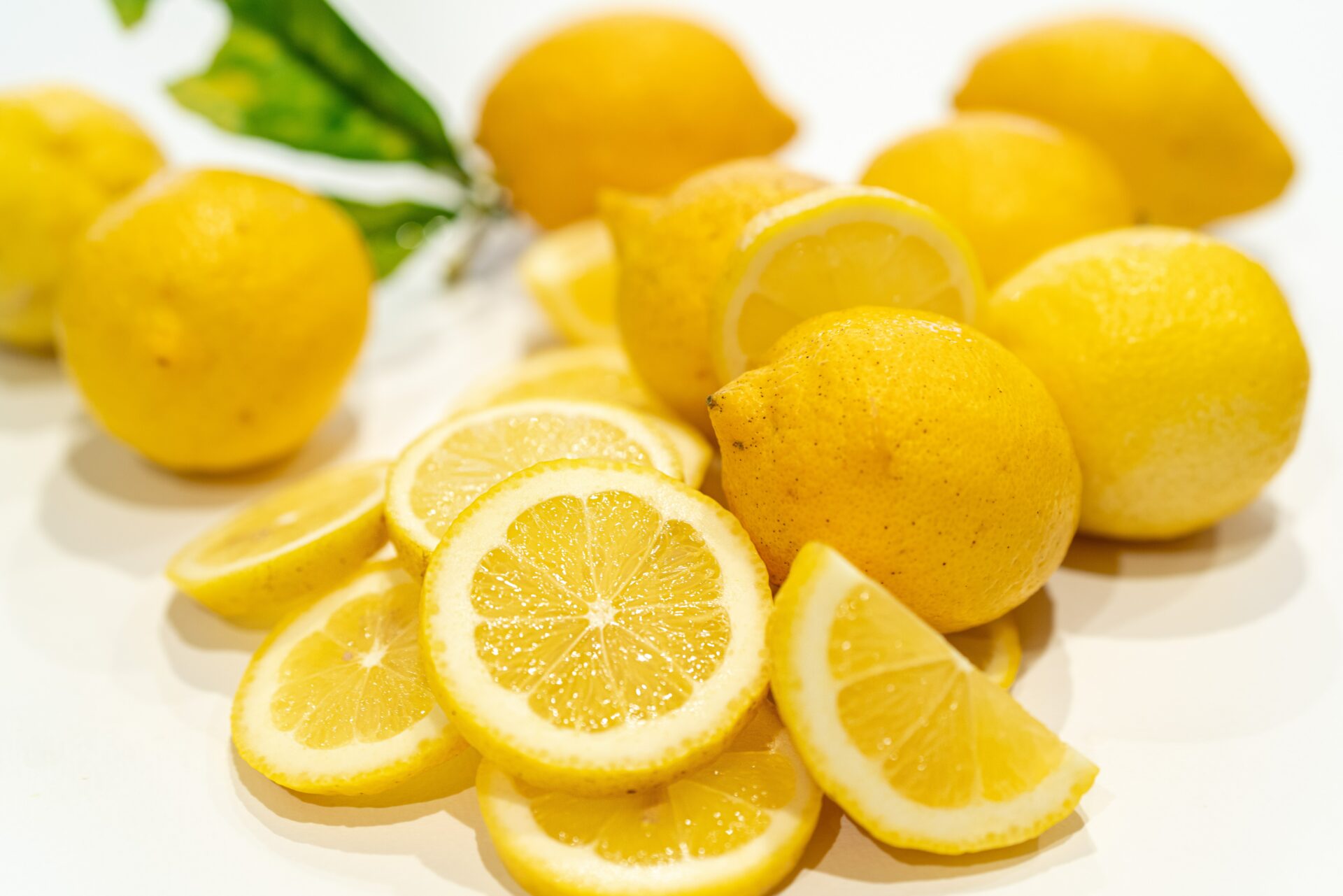
While lemon is not explicitly known for its stress-reducing properties, it is considered a healthy fruit rich in vitamin C and antioxidants. Vitamin C is known to support the immune system and help reduce oxidative stress, which occurs at the cellular level when there is an imbalance between free radicals and antioxidants in the body. Antioxidants can help neutralize free radicals and protect cells from damage caused by oxidative stress.
Additionally, some people may find the aroma of lemon or citrus scents to be uplifting or refreshing, which could positively affect the mood of some individuals. However, the effects of lemon on stress reduction are likely indirect and may vary from person to person.
It’s important to note that while a healthy diet that includes fruits like lemon can support overall well-being, managing stress typically involves a comprehensive approach.
3. Ashwagandha
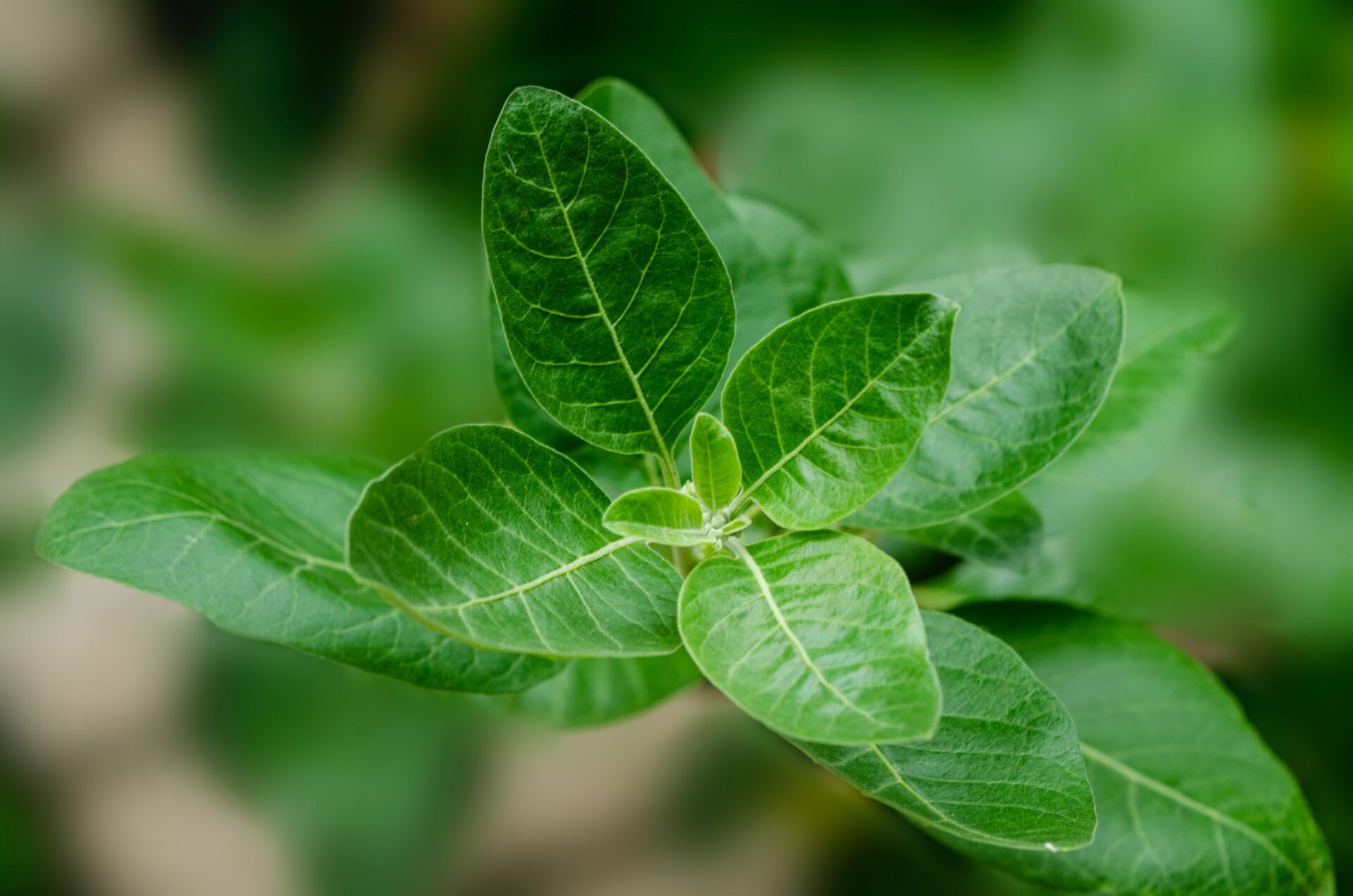
Ashwagandha is an adaptogenic herb used in traditional Ayurvedic medicine for centuries. It is known for its potential to help the body adapt to stress and promote overall well-being.
Several studies have investigated the effects of Ashwagandha on stress and anxiety. The results suggest that Ashwagandha may help reduce stress by modulating the body’s stress response system, including the hypothalamic-pituitary-adrenal (HPA) axis. The HPA axis is involved in the body’s response to stress. Ashwagandha has been found to help regulate cortisol, a stress hormone, which may help reduce stress and anxiety symptoms.
Ashwagandha has also been shown to have antioxidant properties, which may help protect against stress-induced cellular damage. Additionally, Ashwagandha is reported to have calming and relaxing effects on the nervous system, which may further contribute to its stress-reducing and sleep-enhancing properties.
Ashwagandha roots and berries can be consumed on their own, but they are typically found in supplements, powders, and tea forms.
It’s important to note that while Ashwagandha has been shown to have potential stress-reducing effects, individual results may vary. It should not be used as a replacement for professional medical advice or treatment. If you’re considering using Ashwagandha for stress reduction or any other health concern, it’s best to consult with a qualified healthcare provider to determine the appropriate dosage and usage for your specific needs.
4. Lavender
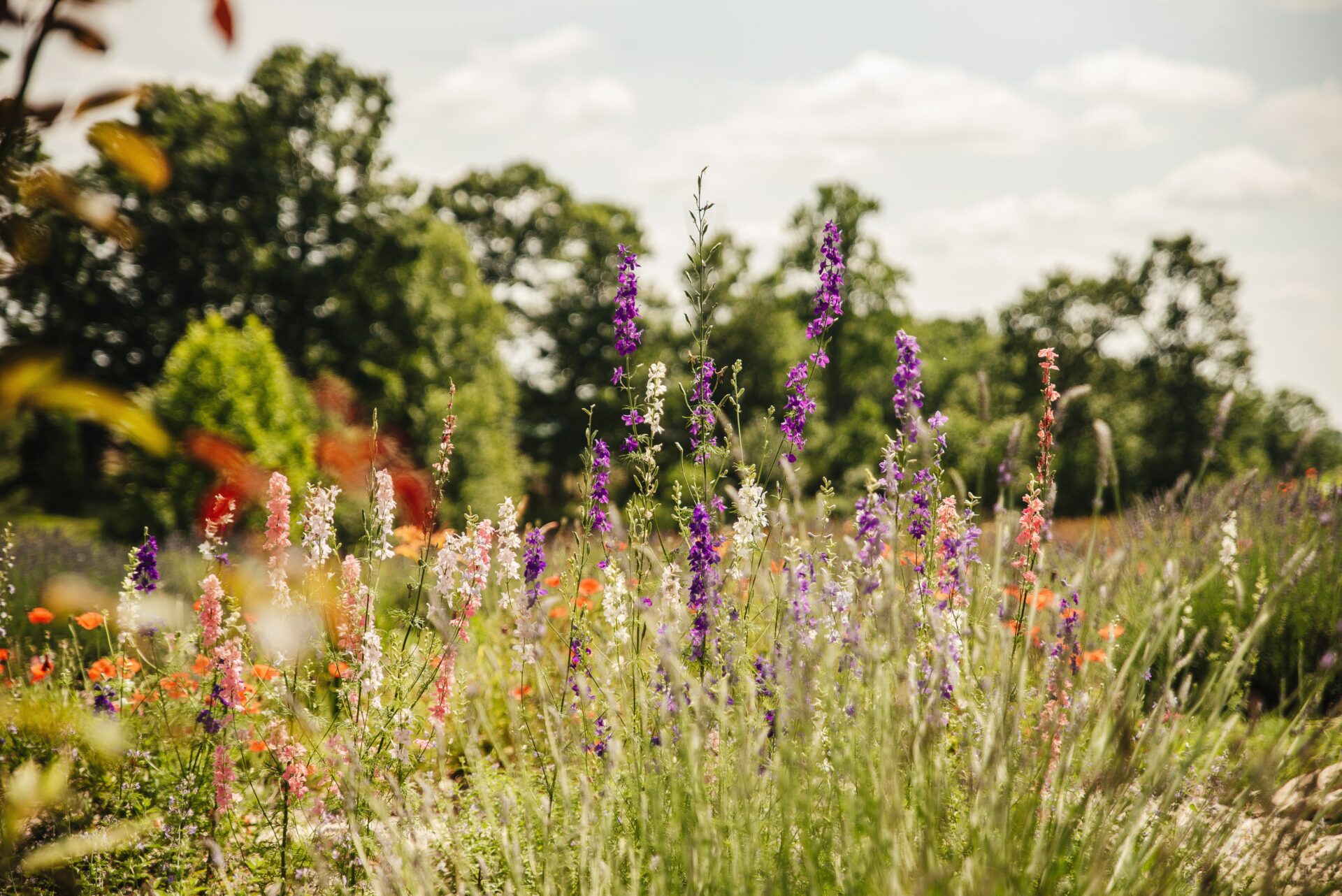
Lavender is a fragrant herb used for centuries for its calming properties. It is often used in aromatherapy, which uses essential oils from the plant for therapeutic purposes, including stress reduction.
Research has shown that lavender may have several stress-reducing effects. The scent of lavender has been found to have a calming effect on the nervous system and may help promote relaxation and reduce anxiety. Inhaling the aroma of lavender essential oil has been shown to reduce cortisol, a stress hormone, and increase feelings of calmness and well-being.
Lavender has also been studied for its potential to improve sleep quality, which is vital for managing stress. Poor or inadequate sleep can contribute to increased stress levels. Lavender has been found to have mild sedative effects that may help improve sleep duration and quality.
Furthermore, lavender has been used topically as lavender-infused oils or lotions for massage, which can help relax muscles. Some studies have shown massages with lavender oil reduce stress and anxiety.
Lavendar, and the other three herbs for stress and anxiety do have calming properties. It’s worth noting that while lavender is generally considered safe for most people when used as directed, some individuals may be allergic or sensitive to lavender. It may also interact with certain medications.
Final Thoughts
It’s not always easy to manage stress, but a balanced diet combined with exercise and good sleep can help with the process. Calming herbs for stress and anxiety can be a great way to combat these problems. But if you experience high levels of stress or anxiety, be sure to consult a healthcare professional to see what the best options are for you. Be sure to check out the KOSI Instagram for updates on our upcoming De-Stress supplement – which will include lavendar, holy basil, and ashwagandha. While you’re waiting, head back to the KOSI blog for more wellness tips and tricks.

